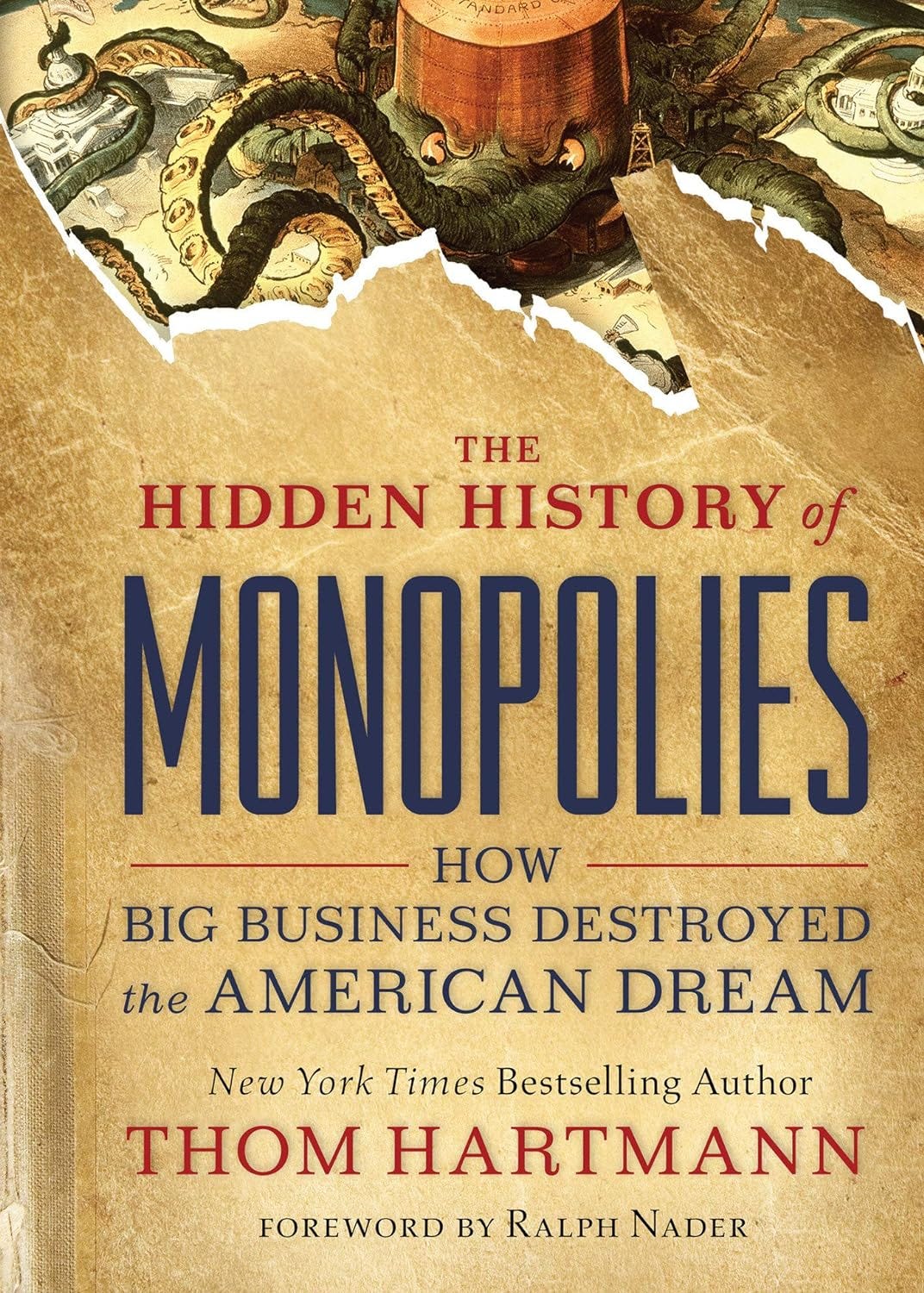Monopolies over Labor
Your weekly excerpt from one of my books. This week: "The Hidden History of Monopolies: How Big Business Destroyed the American Dream"

Monopolies over Labor
When people consider monopolies, or even highly concentrated markets like airlines or pharmaceuticals, generally the only thing they think of is the ability of companies in concentrated markets to set prices wherever they’d like. But there are fully three primary benefits to monopoly or oligopoly, from the monopolists’ point of view.
In addition to setting prices by restricting competition, monopolies can (and typically do) drive down wages so that they end up with a steady supply of cheap labor, and—both by market (selling) control and labor market (workers) control—they send vastly more money flowing to stockholders and senior management than can companies in truly competitive marketplaces.
At its core, though, virtually every aspect of the movement that embraced monopoly (Bork actually wrote about all the “lost” inventions, innovations, and profits that were caused by a lack of monopoly!) boiled down to cheap labor.
Joe Lyles, writing as Conceptual Guerilla, put up a brilliant analysis of this more than a decade ago titled “Defeat the Right in Three Minutes,” suggesting that quite literally everything we call “conservative” was really about driving down wages. While racial hatred and misogyny also play big roles these days in the “conservative” movement, there’s still a lot of truth to Lyles’s analysis.50
Cheap-labor conservatives don’t want a national health care system, because they want workers to be dependent on their employers and thus willing to accept lower wages.
Cheap-labor conservatives hate the minimum wage and unions because both support wage floors and, over time, raise wages for working people.
Cheap-labor conservatives want women relatively powerless (particularly over their own reproductive functions) so that, as in the era before the 1970s, they’ll work for far less than today’s $.78 to a man’s dollar.
Cheap-labor conservatives go on and on about, as Lyles notes, “morality, virtue, respect for authority, hard work and other ‘values’” so that when workers can’t climb the ladder, society will blame it on the individuals instead of a system rigged to maintain cheap labor.
Cheap-labor conservatives encourage bigotry, fear, and hatred to prevent working people from seeing their commonality of human and economic interests, regardless of race, gender identity, or the urban/rural divide.
America has a long history with the cheap-labor crowd: slavery was the ultimate expression of this “conservative” value system, and under the 13th Amendment, it continues to be legally practiced in the United States in our for-profit prison systems.
The 13th Amendment didn’t actually end slavery in the United States; it merely turned it over to prisons, be they state-run or for-profit corporations. It reads: “Neither slavery nor involuntary servitude, except as a punishment for crime whereof the party shall have been duly convicted, shall exist within the United States.” As a result, the pressure on Congress and state legislatures from for-profit prison corporations to increase criminal penalties to give them more literal slave labor has exploded.
Cheap-labor conservatives, it turns out, are also huge fans of monopoly and oligopoly, in large part because these systems keep wages low.
There’s a marketplace for labor, just like for everything else, and when a small number of corporations control a large number of employment venues, they can simply keep wages low through that market power. Check out the pay of fast-food workers or flight attendants or nurses back in the 1960s compared with today; every industry that concentrates or consolidates sees wages go down.


